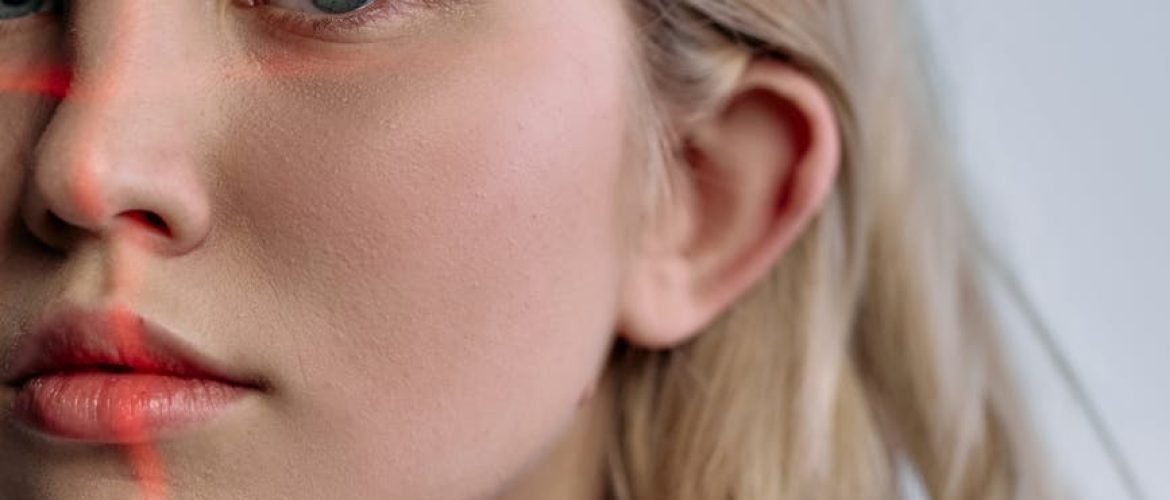Evolution of Biometric Security
Biometric security has come a long way, becoming essential for verifying who you are without the usual hassles. By using your unique physical traits, it provides a safe and quick way to prove your identity without the guesswork.
Introduction to Biometric Authentication
In plain terms, biometric authentication is all about recognising you based on unique physical traits that don’t change over time. It’s this unchanging nature that makes biometric a solid option against tampering. Here are the big players in biometric traits:
- Fingerprints
- Facial patterns
- Iris patterns
These traits get scanned, turned into super-secure codes, and then matched to either let you in or keep others out.
Advantages of Biometric Security
Biometrics have some great perks over old-school methods like remembering a password or a PIN:
- Unique and Complex: Your biological traits are both one-of-a-kind and complicated. You won’t have folks easily copying them, which gives a stronger safeguard.
- Easy to Use: Compared to punching in passwords, just scanning your biometrics is a breeze. No more forgetting passwords or mistyping.
- Rock-Solid Security: The unique nature of your physical traits means they’re tough to trick, making it a trustworthy choice.
For a deeper dive into the types of biometric systems, have a look at our pieces on fingerprint authentication systems and facial recognition technology.
| Feature | Ease of Use | Security Level | Uniqueness |
|---|---|---|---|
| Fingerprints | High | Very High | Very High |
| Facial Patterns | Very High | High | High |
| Iris Patterns | Medium | Very High | Very High |
Knowing how biometric security has evolved lets you decide better about using it, especially in biometric access control systems. With fresh innovations like voice recognition and smart updates in devices such as Alexa, things are looking pretty exciting (Amazon Science).
Voice Recognition Technology
Understanding Voice Authentication
Voice authentication’s taken off as a top-notch way to confirm someone’s identity. Instead of passwords or PINs, it’s digging into the unique quirks of your voice. This fancy tech checks out over 70 special bits of your voice, making it a real headache for anyone trying to pretend to be you (Time Doctor).
Ditching the forgotten-password drama, voice recognition security saves both money and hours. Companies can cut down on password drama and give their help desks a breather. It’s like automation on steroids for user checks (Outsource Accelerator).
Voice authentication swings in two big ways: text-dependent and text-independent.
-
Text-Dependent Voice Authentication: Here, the system throws a short phrase your way—think 3-4 words, said in no time. Perfect for nailing fraud in voice login spots on your phone or computer (Time Doctor).
-
Text-Independent Voice Authentication: Forget repeating phrases; you just chat away naturally. This freedom needs extra voice sample training for precise hits. Ideal for call centres where you’re casually chatting up customer support.
Implementation in Security Systems
Getting voice recognition into your security game isn’t just a plug-and-play deal. Certain steps are key to getting it right:
-
Choosing the Right System: Tailor the tech to your needs. Big money moves? Consider a text-dependent system. More about easing customer service flow? Text-independent’s your friend.
-
Integration and Compatibility: Match the voice tech with your current security toolkit. Maybe add facial or fingerprint recognition for that extra layer of protection.
-
Training and Calibration: Get the system fluent in different voice types by capturing multiple voiceprints. Those variations mean it’ll work smoothly, no matter how you say “tomato.”
-
User Consent and Education: Make sure users are clued up on what’s happening with their voices and they’re cool with it. Keeping things clear builds trust and uptake.
The table below compares how these two voice authentication methods stack up:
| Feature | Text-Dependent | Text-Independent |
|---|---|---|
| Specific Phrases Required | Yes | No |
| Implementation Speed | Fast | Slower |
| User Convenience | Moderate | High |
| Suitable Environment | Mobile/Web Login Applications | Call Centres |
| Accuracy and Security | High | Moderate to High |
If you’re curious about biometric tricks in security, our guide on biometric access control is a good read. Get clued up, pick the voice tech that fits, and give your security the boost it deserves.
Voice Authentication Methods
Alright, so you’re diving into the world of keeping things on lock with your voice. We’ll walk you through two big players in the voice authentication game: text-dependent and text-independent. Plus, we’ll chat about the bits and bobs of your voice that make this tech tougher to crack.
Text-Dependent vs. Text-Independent
Let’s break these down. We’re talking two different styles with their own perks and quirks.
Text-Dependent Voice Authentication
Imagine a secret handshake, but with words. Here, the system throws out a handful of set phrases, and you’ve gotta parrot them back. We’re talking quick phrases—3 to 4 words tops, and done in about 1.5 seconds. This makes it a big deal in stopping fraud—like saying the secret password to get into voice-based apps or websites.
Text-Independent Voice Authentication
Now, if you don’t like being boxed in by words, this one’s your jam. You just talk however you like, no set script. Sounds good, right? But there’s a catch—it needs some extra training and sample time to get it just right. Think of it as perfect for places like call centers, where folks chat freely with reps over the phone.
| Method | What it Involves | Where You’ll Find It |
|---|---|---|
| Text-Dependent | Stick to the script with specific phrases. | Login for apps & websites. |
| Text-Independent | Say what you want, no script holding you back. | Call centers for free-flowing chatter. |
Got a thirst for more on the tech scene? Have a peek at our piece on biometric security solutions.
Voice Biometrics and Anatomy Features
Now let’s talk about why your voice is like snowflakes and fingerprints—unique. Your voice isn’t just about how it sounds; over 70 quirky little traits make each voice one-of-a-kind. That’s what makes voice biometrics a safe bet that’s hard to fake. Smart algorithms dig deep into your voiceprint to spot who’s who.
| Feature | What it Means |
|---|---|
| Unique Traits | 70+ special quirks in your vocal cords. |
| Clever Algorithms | Tech that sifts through your vocal ID to pin down individual speakers. |
Forget easy-to-guess passwords; voice authentication is a vault! You just need to speak up, adding a layer of safety. Pairing voice ID with other tech like facial recognition piles on the no-entry sign for unwanted guests and ID thieves.
Want the full scoop on other biometrics, like fingerprint authentication? Slide on over to our pages.
In the world of security, knowing these voice tricks and the anatomical magic behind them bolsters your defenses, locking out the fraudsters with force. For a bigger perspective, wander through our piece on biometric access control.
Applications and Market Trends
Growth of Voice Recognition Market
Voice recognition is gaining ground in biometric security, showing off its popularity like a badge of honour. Back in 2020, the global market size was pegged at $9.27 billion, but it’s set to balloon to a whopping $27.16 billion by 2025, thanks to a neat growth rate of 23% a year. With such rapid growth, it’s clear that folks are hungry for secure, easy, and reliable ways to authenticate who they are.
| Year | Market Size (Billion USD) |
|---|---|
| 2020 | 9.27 |
| 2021 | 11.40 |
| 2022 | 14.03 |
| 2023 | 17.27 |
| 2024 | 21.22 |
| 2025 | 27.16 |
Just over in the US, the voice recognition tech market didn’t want to be left out, nudging close to $12 billion in 2022, and it’s expected to swell up to $50 billion in the next ten years. This leap is thanks to fancy pants developments in AI, more folks getting online, and an increased need to keep things under lock and key.
Voice Recognition in Various Sectors
Voice recognition tech isn’t picky—it’s found a cozy spot in all sorts of industries, making life easier, safer, and just plain better. In 2022, the US welcomed about 142 million users of voice assistants, showing a warm embrace towards this nifty tech (Softjourn).
Banking and Finance
The banking world is all over voice biometrics like bees on honey, with user numbers expected to hit a jaw-dropping 1.9 billion by 2023—up from a humble 69 million in 2016 (Softjourn). Using your voice to confirm who you are during phone calls ramps up security and helps keep dodgy fraudsters at bay.
Healthcare
Over in healthcare, voice recognition is a lifesaver when it comes to patient ID and jotting down data. It boosts accuracy and saves oodles of time for those busy health professionals, while also offering peace of mind with secure patient records.
Government and Law Enforcement
When it comes to identity checks and cracking down on crime, voice recognition steps up to the plate. It’s able to take voice cues and pin down individuals just like how detectives use fingerprints.
Consumer Electronics
Gadgets and gizmos like smartphones and smart home systems love showing off voice assistants, integrating this tech to make user authentication and commands a breeze. It’s all about that smooth, hands-free interaction.
As technology chatters along, voice recognition is staking its claim in more industries every day. If the idea of exploring other biometric security methods tickles your fancy, check out our deep dives on biometric security solutions, facial recognition tech, and fingerprint systems. The future of security is looking smart, slick, and all about the user, just like voice recognition itself.




